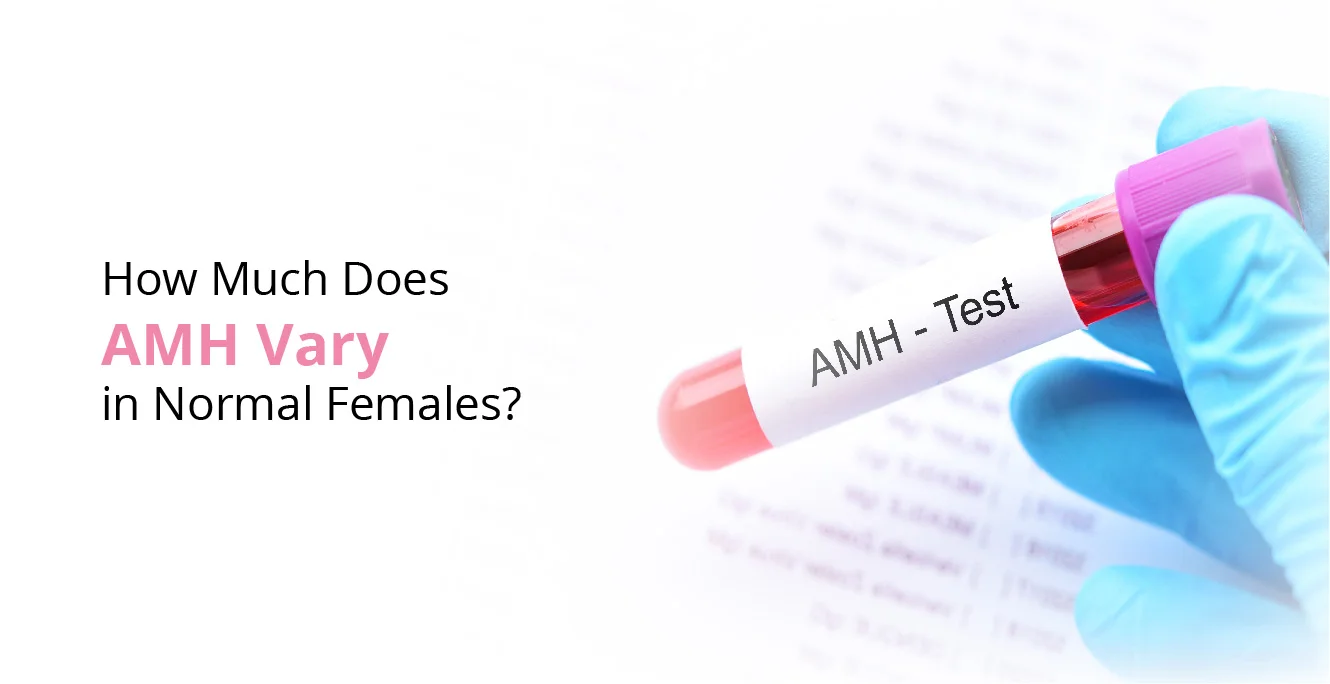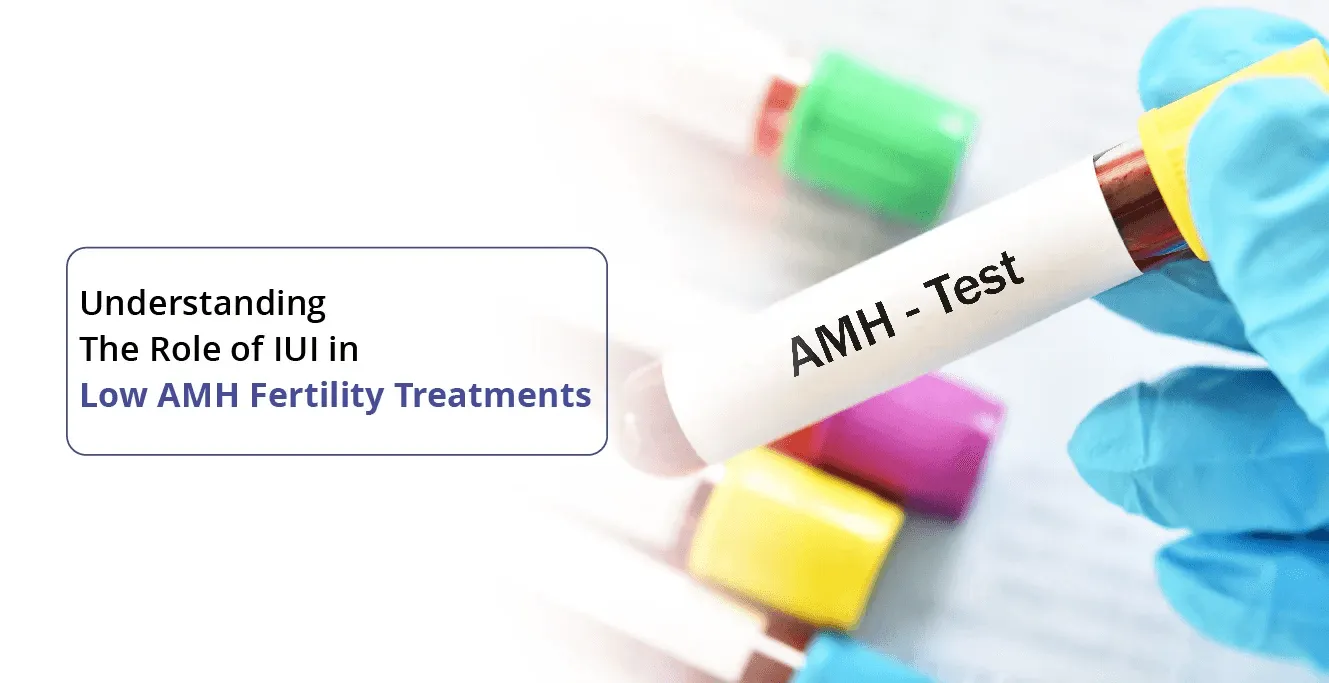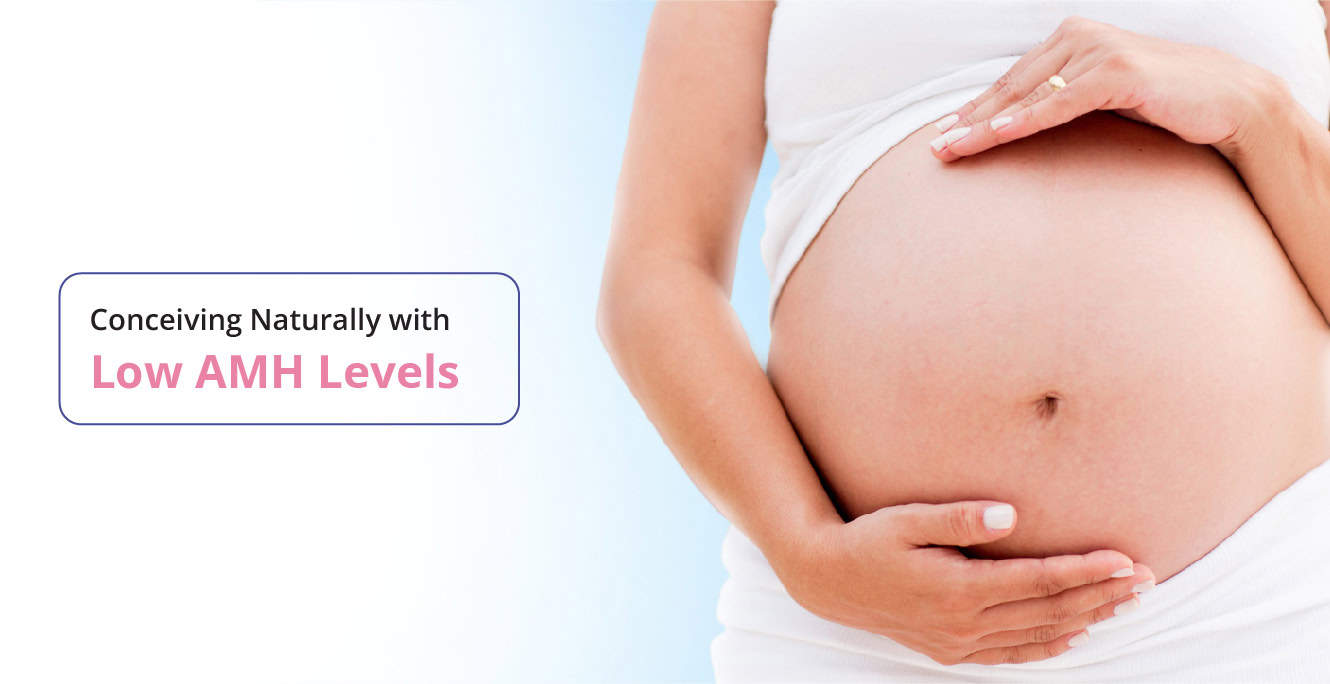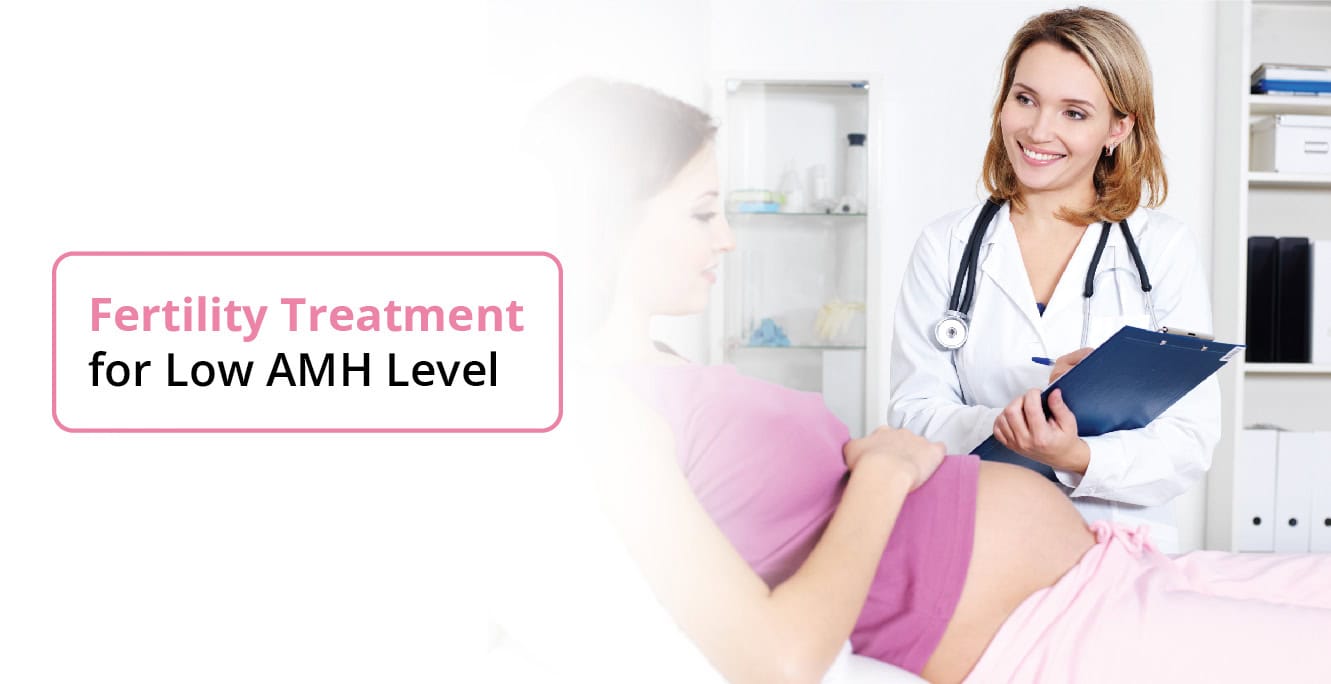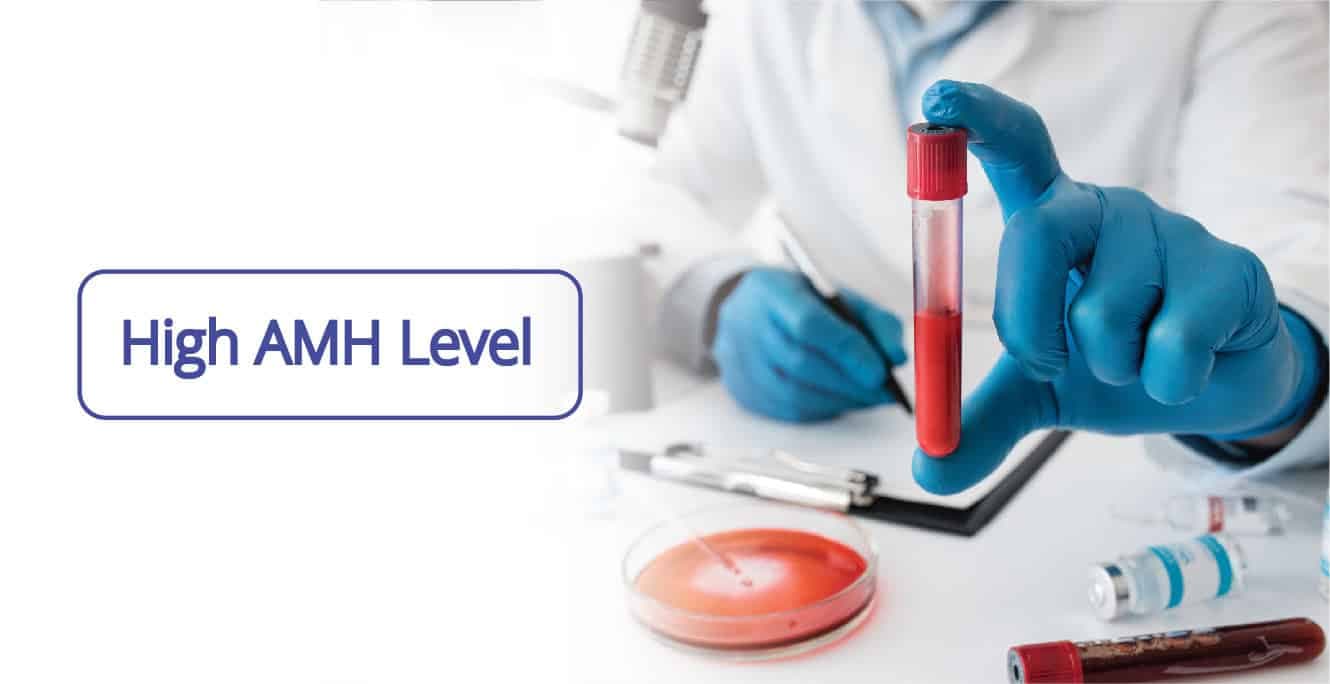
Understanding High AMH Levels and Their Impact on Fertility Treatments

Table of Contents
Key Takeaways
- High AMH levels indicate a larger ovarian reserve but do not guarantee egg quality or successful pregnancy.
- While high AMH offers advantages in fertility treatments like IVF, it also presents risks such as ovarian hyperstimulation syndrome (OHSS).
- Fertility treatment options for high AMH include IVF, ovulation induction, insulin sensitisers, and lifestyle modifications.
- Tailored treatment plans based on individual health profiles, careful management, and minimising risks are crucial for achieving a successful pregnancy outcome in women with high AMH levels.
When you’re trying to conceive, understanding your reproductive health is crucial. One key aspect is your Anti-Mullerian Hormone (AMH) levels. AMH levels indicate a woman’s ovarian reserve and egg count and can provide valuable insights into a woman’s fertility potential. While a high AMH level may seem like a positive sign, indicating a larger pool of eggs, it can also be associated with certain fertility challenges. In this article, we’ll delve into the implications of high AMH levels, explore the potential causes, and discuss the available fertility treatment options.
Did You Know?
While specific data on the prevalence of high AMH levels in the Indian subcontinent is limited, PCOS (often associated with high AMH) affects a significant portion of the female population in India. Studies suggest that PCOS affects approximately 3.7% to 22.5% of women of reproductive age in India.
Given the strong link between PCOS and high AMH levels, this statistic may indicate that a considerable number of women in India may have high AMH levels.
The Role of AMH in Assessing Ovarian Reserve
AMH is a glycoprotein hormone secreted by the granulosa cells of the ovarian follicles. It plays a vital role in regulating follicle development and is considered a reliable marker for a woman’s ovarian reserve. Unlike other hormones such as Follicle-Stimulating Hormone (FSH) and oestradiol, AMH levels remain relatively stable throughout the menstrual cycle, making it a convenient and accurate measure of fertility potential.
A high AMH level suggests a larger ovarian reserve, meaning a higher number of eggs. However, it’s important to note that while AMH indicates the quantity of eggs, it does not necessarily reflect their quality.
What Causes High AMH Levels?
There are different reasons for high AMH levels. Elevated AMH levels can be attributed to various factors, with the two most common causes being:
- Polycystic Ovarian Syndrome (PCOS): PCOS is a hormonal disorder characterised by irregular menstrual cycles, excessive androgen production, and the presence of multiple small cysts on the ovaries. Women with PCOS often have a higher number of antral follicles, leading to increased AMH levels.
- Certain ovarian tumours: In some cases, high AMH levels may be associated with specific types of ovarian tumours, such as granulosa cell tumours. These tumours can secrete AMH, resulting in elevated levels.
Other Factors Influencing AMH Levels
Apart from PCOS and ovarian tumours, several other factors can impact AMH levels:
- Genetics: Some women may have inherently higher or lower AMH levels due to genetic variations.
- Smoking: Cigarette smoking has been linked to lower AMH levels and accelerated ovarian ageing.
- Chemotherapy and radiation therapy: These treatments can damage the ovaries and lead to a decrease in AMH levels.
- Reproductive factors: Age at menarche, pregnancy, parity, and irregular menstrual cycles can affect your AMH levels.
- Lifestyle factors: Excessive alcohol consumption, obesity, and your level of physical activity can influence your AMH levels.
- Environmental factors: Exposure to outdoor air pollution and heat stress can impact your AMH levels.
The Pros and Cons of High AMH Levels
Having high AMH levels can present both advantages and challenges when it comes to fertility.
Pros:
- Higher egg yield: Women with high AMH levels often respond well to ovarian stimulation during fertility treatments like in vitro fertilisation (IVF). They tend to produce a higher number of eggs, increasing the chances of creating viable embryos.
- Opportunity for egg freezing: The higher egg yield associated with high AMH levels provides an opportunity for women to freeze their eggs for future use, preserving their fertility potential.
Cons:
- Risk of ovarian hyperstimulation syndrome (OHSS): Women with high AMH levels, particularly those with PCOS, have an increased risk of developing OHSS during ovarian stimulation. OHSS is a condition where the ovaries become swollen and painful due to an excessive response to fertility medications.
- Concerns about egg quality: While high AMH levels indicate a higher quantity of eggs, they do not guarantee the quality of those eggs. Some of the retrieved eggs may be of average or poor quality, which can impact the success of fertility treatments.
- Increased risk of preterm delivery: Studies have shown that women with elevated AMH levels, especially those with PCOS, may have a higher risk of preterm delivery when undergoing fertility treatments like IVF.
Lifestyle Factors Affecting AMH Levels and Fertility
While lifestyle changes cannot directly control high AMH levels, adopting healthy habits can contribute to overall reproductive health.
- Maintaining a healthy weight: Being overweight or obese can worsen PCOS symptoms and insulin resistance, which are often linked to high AMH levels. Achieving and maintaining a healthy weight can improve insulin sensitivity and promote hormonal balance.
- Eating a balanced diet: Consuming a diet rich in fruits, vegetables, whole grains, and lean proteins can support weight management and enhance insulin sensitivity.
- Regular exercise: Physical activity plays a crucial role in managing PCOS and boosting fertility. Exercise helps reduce stress, improve insulin resistance, and regulate hormonal imbalances.
- Stress management: High stress levels can negatively impact fertility. Engaging in stress-reducing activities such as yoga, meditation, or counselling can be beneficial.
Fertility Treatment Options for High AMH Levels
Depending on the underlying cause and individual circumstances, various fertility treatment options are available for women with high AMH levels:
Ovulation Induction
For women with PCOS and high AMH levels, ovulation induction is often the first line of treatment. Medications like clomiphene or letrozole are used to stimulate the release of mature eggs. This approach can be combined with timed intercourse or intrauterine insemination (IUI) if there are concerns about the partner’s sperm health.
In vitro fertilisation (IVF)
IVF is a popular treatment option for women with high AMH levels, particularly when there is a risk of multiple pregnancies or other complications associated with ovulation induction. IVF allows for better control over the number of eggs used and reduces the likelihood of multiple pregnancies. However, close monitoring is essential to minimise the risk of OHSS.
Egg Freezing
Women with high AMH levels may choose to freeze their eggs for future use. This process involves ovarian stimulation, egg retrieval, and cryopreservation of the eggs. Egg freezing is an attractive option for women who want to preserve their fertility but are not ready for immediate pregnancy.
Treatment Tip:
For women with high AMH levels undergoing fertility treatments, careful monitoring is essential to avoid complications like Ovarian Hyperstimulation Syndrome (OHSS). Tailored treatment plans, such as adjusting medication doses or considering alternatives like egg freezing, can help minimise risks and improve the chances of a successful pregnancy.
Managing High AMH levels
Insulin Sensitisers
For women with insulin resistance, which is common in PCOS, medications that improve insulin sensitivity can be helpful. These drugs can promote weight loss and improve hormonal balance, potentially restoring natural ovulation.
Personalised Treatment Plans
Given the individual variability in how high AMH levels affect fertility, it is essential to develop a tailored treatment plan. Factors such as age, hormone levels, and medical history should be considered to ensure the most effective approach.
|
Factor |
Consideration |
|---|---|
|
Age |
Older women may have lower egg quality despite high AMH levels. |
|
Hormone levels |
Other hormones like FSH and estradiol should be evaluated alongside AMH. |
|
Medical history |
Pre-existing conditions like PCOS or previous fertility treatments can influence the treatment plan. |
Word From an Expert
High AMH levels can be both a blessing and a challenge when it comes to fertility. While they indicate a larger ovarian reserve, it’s crucial to understand that quantity doesn’t always equate to quality. Women with high AMH levels should work closely with their fertility specialist to develop a personalised treatment plan that takes into account their unique circumstances. Lifestyle modifications, such as maintaining a healthy weight and managing stress, can also play a significant role in optimising reproductive health. ~ Dr. Anupam Kumari
Our Fertility Specialists
Related Blogs
To know more
Birla Fertility & IVF aims at transforming the future of fertility globally, through outstanding clinical outcomes, research, innovation and compassionate care.
Had an IVF Failure?
Talk to our fertility experts

 Our Centers
Our Centers







